Welcome to The Tonic, a light-hearted, heavily resourced newsletter for folks interested in learning about long COVID, ME/CFS, and other chronic illnesses. Come for the info; stay for the whimsy. Or vice versa.
Please note: my posting strategy is changing in response to my ever-shifting availability of energy (often referred to as ‘spoons’). I will generally post once a week on Saturdays or Sundays: a narrative post when my energy allows and resource roundups (known here as The Antidote) at all other times. Occasionally I post more than once a week, usually to announce an event or to push brief, timely info out to you sooner.
Wish list shout outs!
It’s been so heartwarming to receive your gifts in support of my efforts here via the Amazon wish list in lieu of paid subscriptions (which could jeopardize my disability benefits). A big Tonic THANK YOU this week goes to Michael S., Tracy H., and David K.
If anyone else is interested in showing support, see below for the skinny. There’s something for every budget and any help is appreciated. (Note: please be sure to include a note with your gift(s) so I can reach out and thank you!)
The Tonic is free to read - Amy is so happy you’re here! There is no paid subscription option here like with other Substack newsletters. However, if you are valuing the experience and are able, please consider a show of support by sending a gift of health, wellness, or joy from this Amazon wish list. Anyone who does gets a 📢 in an upcoming post. Thank you!
Now for this week’s post.
Intermittent fasting
You know those people who are like, “and then I looked up and it was 4pm and I realized I had forgotten to eat lunch?”
Me:
In the before times, I couldn’t fathom forgetting to eat a meal, let alone skipping one on purpose. I was the gal who always carried multiple snacks in her bag, who thought about meals hours and sometimes days in advance. I’d get shaky and “hangry” if I went too long without eating, to the point where a beloved former employee of mine was known to first ask, “have you eaten yet?” whenever she called to discuss anything important.
Then came COVID and then Long COVID. Two and a half years into LC, my endocrinologist told me I was pre-diabetic and my previously under control thyroid levels were now all out of whack. A few months later, my primary care doctor told me I had high cholesterol.
I was put on metformin for the pre-diabetes (and told it may have other anti-inflammatory properties), a statin for the high cholesterol, and my thyroid levels took almost a year to stabilize after 25 years of largely steady readings since my Hashimoto’s diagnosis at age 22.
Although I had plenty of well-documented issues during the first two years of Long COVID, including MCAS, POTS/dysautonomia, Epstein Barr reactivation, T cell exhaustion, small fiber neuropathy and more, it took over two years for whatever inflammatory processes or viral fuckery was going on to start resulting in metabolic and endocrine findings. The pre-diabetes and hypercholesterolemia were the most surprising, since I have basically eaten a Mediterranean (pescavegetarian) diet for almost 20 years. I have a sweet tooth, but I had cut way back on sugar about a year into Long COVID, and I just do not eat that much dairy or other animal products to warrant such a big increase in my cholesterol.
My infectious disease doctor told me after these findings that it seemed that long haulers who were still sick after two or three years were developing these same issues. I asked other long haulers in Facebook groups and it seemed this definitely was a trend among us (along with things like NAFLD, or non-alcoholic fatty liver disease). Since no one really understands Long COVID all that well yet, it’s hard to say why this is happening, but it is definitely distressing.
Up until about eight months ago, I had only tried fasting a few times, based on the idea that it induces a process called autophagy, which is essentially a “self-devouring” or cleaning up of dead or dying cells or their component parts. Autophagy happens in all of us and is part of achieving homeostasis in the body. It was a big topic of discussion for a while in some of the online long hauler groups, with some individuals swearing that fasting and thus inducing or speeding up autophagy cured them or got them substantially better and others saying “meh - didn’t do much for me.”
Brief detour for some history
Fasting has been used for centuries by various cultures and followers of certain religions. This 2015 article in The Telegraph does a great job of covering some of the history. Here’s a snippet:
In ancient Greece, Pythagoras was among many who extolled its virtues. During the fourteenth century it was practised by St Catherine of Siena, while the Renaissance doctor Paracelsus called it the “physician within”. Indeed, fasting in one form or another is a distinguished tradition and throughout the centuries, devotees have claimed it brings physical and spiritual renewal.
In primitive cultures, a fast was often demanded before going to war, or as part of a coming-of-age ritual. It was used to assuage an angry deity and by native north Americans, as a rite to avoid catastrophes such as famine.
Fasting has played a key role in all the world’s major religions (apart from Zoroastrianism which prohibits it), being associated with penitence and other forms of self control. Judaism has several annual fast days including Yom Kippur, the Day of Atonements; in Islam, Muslims fast during the holy month of Ramadan, while Roman Catholics and Eastern orthodoxy observe a 40 day fast during Lent, the period when Christ fasted 40 days in the desert.
So, if it seems like all you’re hearing about these days is intermittent fasting and thinking it’s some sort of health fad, think again. It’s been around for millennia.
Fast and much less furious
I happened to mention to my endocrinologist at a follow-up appointment that I was toying with doing intermittent fasting (IF), eating only between 12noon-8pm each day. She was very enthusiastic about this as a way to keep my blood sugar in check. (She also gave me some other very helpful tips, like if you’re going to eat fruit or carbs, slap some protein or fat on it to slow down the absorption of the sugar into your bloodstream).
I have been doing IF for about eight months now and while it has certainly not been a miracle cure of any kind, it has definitely helped stabilize my blood sugar (I rarely get hangry anymore) and also thus minimized my sugar cravings and my need to always think about my next meal (I never thought this last part would happen in my lifetime). It has also gotten my weight down a bit (though this plateaus after a certain point). IF is not necessarily intended to result in calorie-cutting, but for me it has, since I eat a meal at 12-1ish, a snack around 4pm, and another meal around 6:30-7, effectively cutting out one entire meal and probably at least one snack.
The other thing IF has helped with is the post-meal POTS flares I was getting, where my body would apparently be working so hard to digest my food that my heart would beat much faster. For a good while there, I couldn’t do anything remotely physical for about an hour after lunch because my HR was elevated to 120-130 while I was just sitting. Not only do I think IF has helped with this, but making my first meal of the day not a super big one has also helped. I ease my way into eating for the day and my HR doesn’t spike as dramatically.
On the whole, I have adjusted well to IF; at this point, it’s an established habit. Of course, as a spoonie on disability, adjusting shouldn’t have been all that hard.
Most people can benefit from giving their bodies a break from digesting, which takes a lot of energy. When your body doesn’t have to focus so much on digestion, it can spend more of its energy on clean up and healing. There is some evidence in animal studies that IF is good for brain health too, which may translate over to humans. There are also clinical studies that show benefits of IF for folks with brain disorders such as Alzheimer’s, epilepsy, and multiple sclerosis.
I wanted to share some great IF resources I have come across in my travels, either specific to Long COVID or otherwise.
Articles/studies
Videos
Beginners Guide to Intermittent Fasting - Dr. Jason Fung has tons of videos on his YouTube channel about intermittent fasting, and here’s a great starter video with the basics.
Fasting Tips for Long COVID and other Chronic Illness - this is a great video for laypeople with LC and other illnesses who want some tips with a bit of well-explained science backing it up.
Intermittent Fasting and Potential Immune System Restoration - Dr. Mobeen Syed (affectionately known as “Dr. Been”) has a lot of great videos about Long COVID and related issues. Readers should know that his audience is primarily medical students (whom he refers to as the “Cool Beans”), so there’s a high level of sophistication in his videos. However, he is extremely likeable and also a talented cartoonist, and he uses these skills to both keep viewers engaged and to depict the biological and chemical concepts in his videos. Even if you’re not a science geek, you can catch a lot of what he’s explaining from his drawings and in context. This first video discusses the ways in which IF contributes to immune system restoration. For more of a “how-to” on IF from Dr. Been, check out the video after this one.
How To Do Intermittent Fasting
Bringing this in for a landing
Intermittent fasting is not for everyone, though it should be noted that if you stop eating at a certain point at night and don’t eat again until after you wake up in the morning, you are already engaging in a form of IF.
For those who want to ease into trying this out, it’s good to start with a 12-hour fasting (and thus, 12-hour eating window); for example, stopping your food intake at 8pm at night and not eating again until 8am the next morning. If you can do this for a while and not suffer any ill effects, you can stretch the morning meal to 10am and then eventually to 12 noon, which would effectively be a 16:8 IF schedule (16 hours of fasting, 8 hours of eating). Some folks go even further and do an 18:6 or 20:4 IF schedule. It’s important to listen to your body and you may also want to consult with a doctor. Some folks should not be fasting, like children, or pregnant or breastfeeding adults (see the Jason Fung video above for details).
I have been in a pattern of 16:8 most days, and lately I also do one day a week of a deeper fast (somewhere between 20-24 hours). I make sure to drink plenty of water and I use sugar-free electrolytes (like these from LMNT), which do not break your fast and ensure that you have proper sodium and potassium levels. The electrolytes also help me not feel so hungry during these longer fasts. I also drink coffee with unsweetened almond milk creamer, which also doesn’t break my fast. I might also drink some veggie broth, as the warm liquid makes me feel like I’m having a meal. Others like to have bone broth. It’s important to make sure that whatever broth you take doesn’t have any sugar (not as easy to find as you might think).
There is some information out there that says that a 72-hour water fast can induce autophagy to such an extent that your immune system essentially ‘resets.’ I have never been able to withstand a fast of this long without developing a headache or fogginess. I tend to hit my wall around 24 hours. A few months back, I did a 40 hour fast (stopped eating at 7pm one night and started eating again two days later around noon) and I felt really terrible the rest of that (but I felt unusually good the next day). There is one Dr. Been video where he advises long haulers against doing more than 18-20 hours, though I saw it over a year ago and cannot put my hands on it now. I also don’t remember what his reasons were. For me, I’d rather if it takes me a little longer to heal through doing once-a-week deeper fasts than trying to white-knuckle it through 72 hours in a row. But again, this is a matter of comfort, choice, and also maybe something to discuss with your doctor.
Now you
Have you ever tried fasting or intermittent fasting for any reason? And did it help you feel better - physically, mentally, emotionally, spiritually? Let’s discuss over a tumbler of electrolyte water.
Stick around for…
🥳 The After-party 🥳
Announcements, links to articles and studies, recommendations and shout-outs, and miscellany joy and/or tomfoolery.
👂🏽 A great article in the New Yorker (online edition) this week on the Yale LISTEN study: What Would It Mean for Scientists to Listen to Patients. (Yours truly is the patient mentioned in this article 👩🏻🦰).
👨🏽⚕️ An interview with Dr. Ziyad Al-Aly: Breaking Down the Latest on Long COVID Research (requires a free Med Page Today subscription).
🥕 I mean, vegetarianism didn’t save me from getting COVID, but heck: Vegetarian and plant-based diets associated with lower incidence of COVID-19.
🦠 Super interesting: chronic COVID is considered something different than Long COVID (patients never stop testing positive for the virus), and immunocompromised patients are most at-risk.
🌬️ U.S. readers: a Robitussin recall you might want to know about.
📨 Substack’s
with a powerful and moving video in her Unfixed series, Dear Diagnosis, where patients write letters to their chronic illness:😔 This week in tragic and unjust: There was no heartbeat. There was nothing to save. Miscarriages don't reverse themselves, despite what politicians may think.
🤯 This week in WT Actual F: Did you know that there was a White House pharmacy?! And that staffers could just grab drugs out of open bins, or request “the good shit” as going away presents for departing staffers?
🤦🏽♂️ Buffoon of the week: In a follow up to last week’s Stanley tumbler buffoonery, here’s a different woman, 23yo, arrested for stealing 65 of these (perfectly ordinary, I don’t get it, why why WHY?!) “sippy” cups for “adults.”
🏆 Winner of the week: just as I was turning to the news to find a winner this week, we have breaking news (and an easy pick for winner):
, who just won another $83.3 million in damages from the orange-faced manchild rapist who can’t keep his piehole shut or his dumb fingers from defaming. He’s running out of money for bronzer, you guys.🐈⬛ 💩 And finally, it’s this week’s Cat Dump. Birdie-birds edition.
I found a picture/headline of this apparently deadly wild kitty (the Black-footed cat, a fierce predator that hails from Africa) and I was like, “aww, she looks like our little Birdie-birds!” So I had fun making these side-by-sides of them. Which one do you like better: #1 or #2?
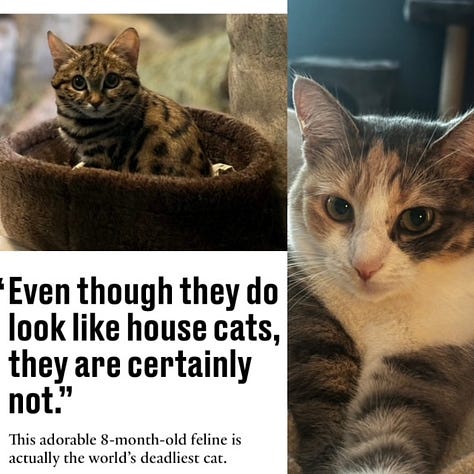

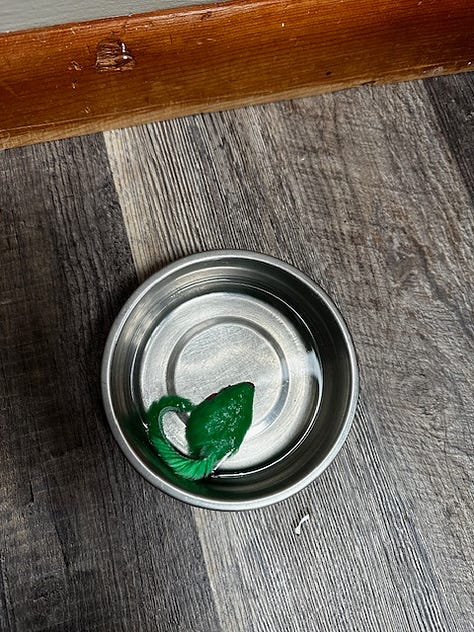
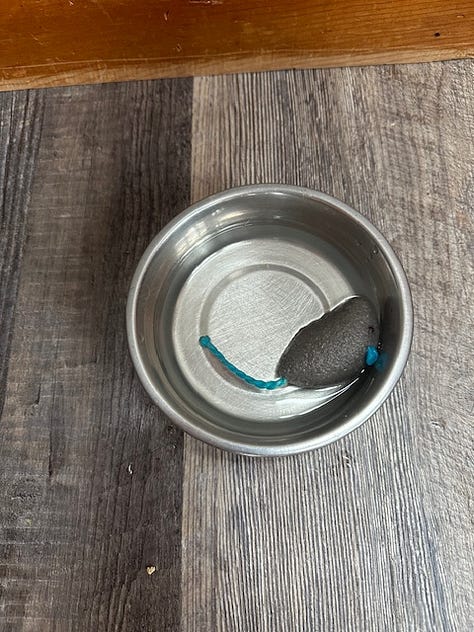
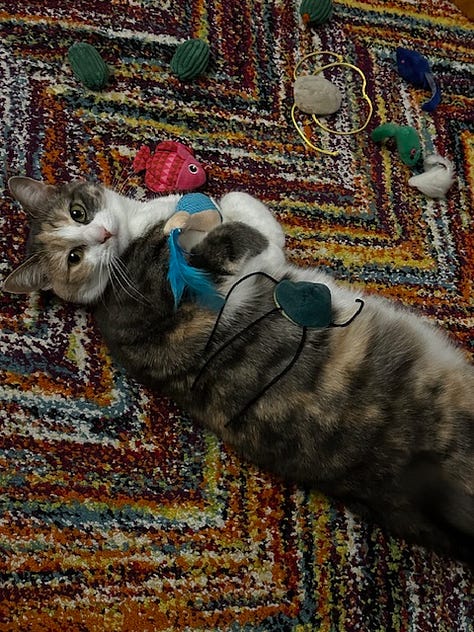



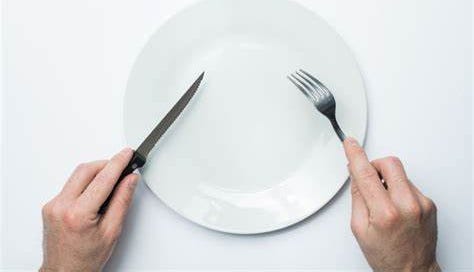


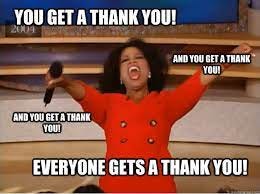

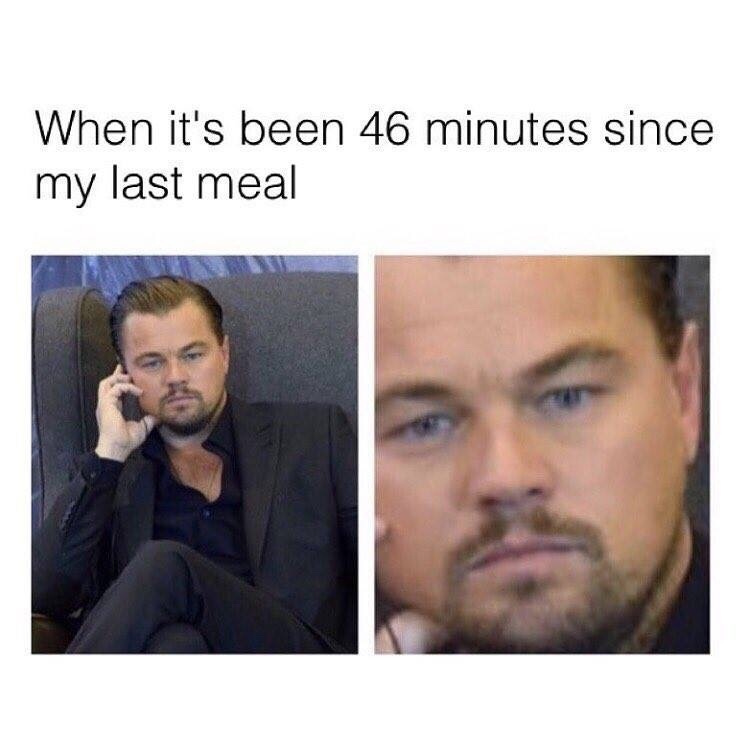









Figuring out fasting when taking medications/supplements 4x/day with some needing to be fasting and others needing to be taken with food is much like a logic question on the GRE. I found eating 10am-6pm works best for me. I honestly can’t remember if I’ve been doing it 1 or 2 years now and I’m not sure if it has made a difference. It’s really hard to tell when I keep changing other interventions, but I’m also too sick to pace interventions which could possibly help me one at a time with a reasonable amount of time in between them. Despite my efforts in eating clean & adhering to my fasting schedule, my cholesterol soared (normal pre-covid) and I can’t lose the post covid weight (likely inflammation). I wish there was a more obvious sign that this helps me, but I stick with it anyway.
Gosh, I have such a turbulent relationship with food and body shape and all the reasons to fast or diet or restrict food. Yeesh. I did juice fasting years ago when it was popular and relevant. Two things I noted. 1, my teeth felt awful NOT chewing regularly. 2, by somewhere around day 2 I was always hit with an extraordinary sense of peace and stillness in my gut, like it could finally rest. Bottom line, I don't think I really have the right personality/mental state/zodiac sign or whatever it takes to say no to my body when it is hungry or tired or cranky. So instead I'm slowly learning to listen to it and follow those cues.